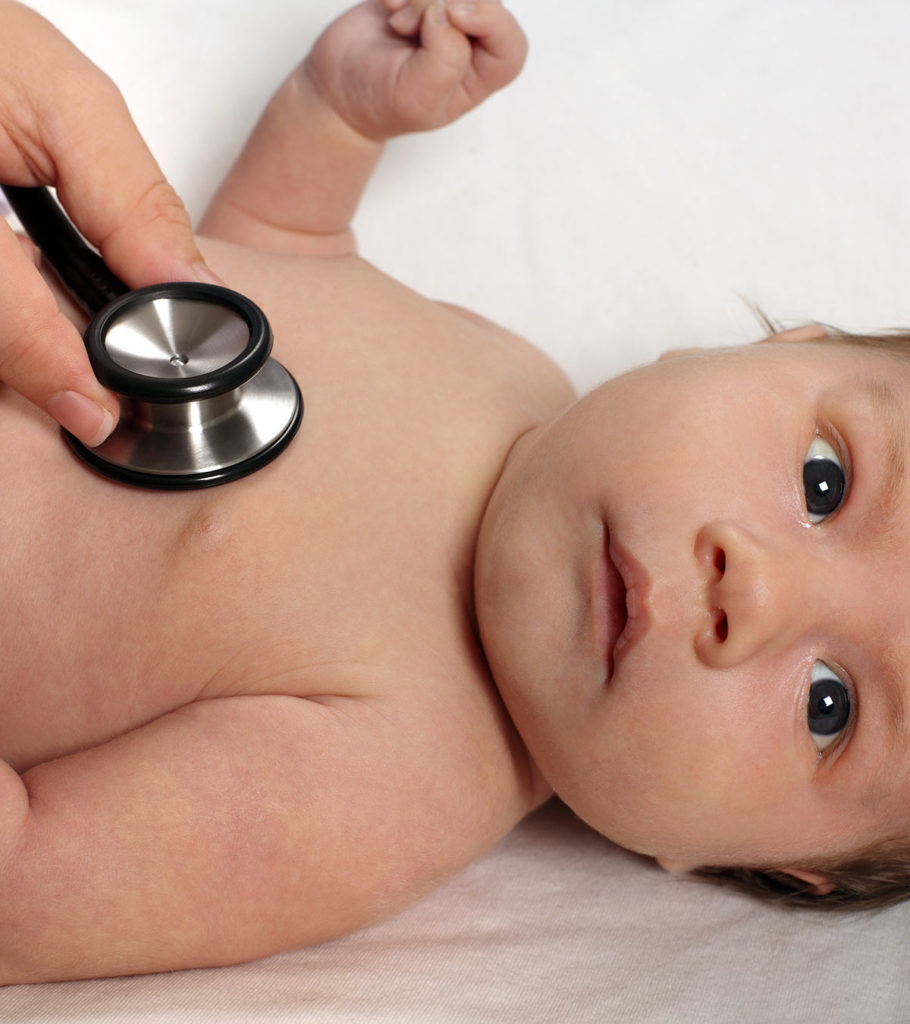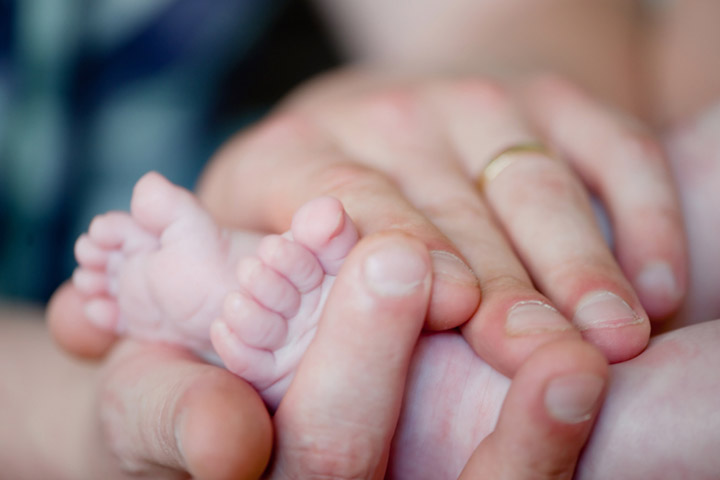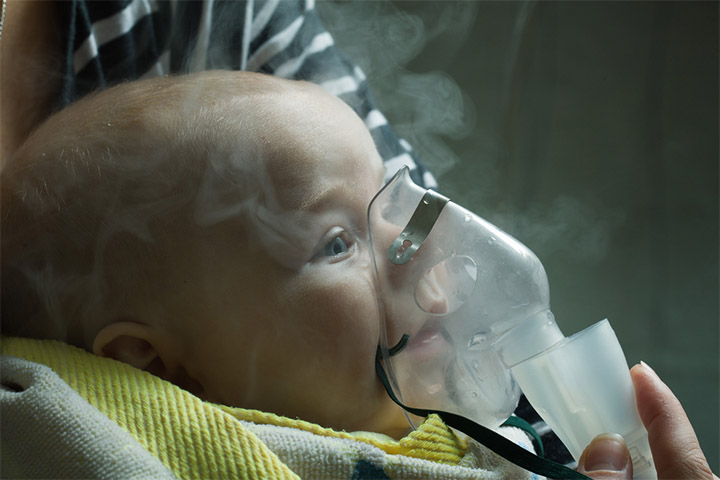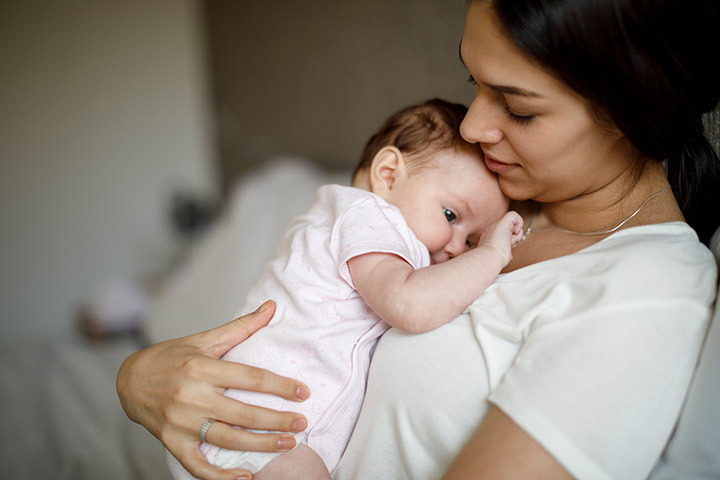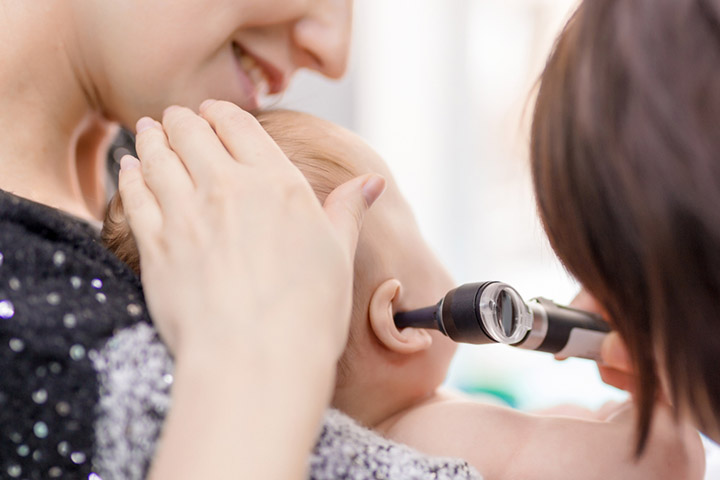The initial days of parenting may be overwhelming because of the several changes on the baby’s arrival. Also, most parents are not well-informed about managing infant and newborn problems, which leads to more anxiety.
Newborns are delicate and do not have a completely developed immune system. Therefore, they are at risk of getting infections frequently. If these infections are ignored at the right time, they may lead to complications. So, parents need to know about the common issues related to infants and ways to manage them.
This post provides you with a list of common infant problems and ways to deal with them.
Common Newborn Baby Problems
When it comes to health problems, the newborn stage is the most critical. Here are a few health conditions that are fairly common in newborns:
1. Abdominal Distension:
Most newborns have protruding bellies. But if your baby’s belly feels hard and swollen in between feeds, do some sleuthing. Nine times out of 10, it will be just gas or constipation, but sometimes a swollen belly can indicate a serious underlying condition (1).
2. Birth Injuries:
A difficult labor can leave your newborn with some birth injuries. Most newborns recover quickly from these injuries, so don’t stress about it. Some common birth injuries your infant may encounter are a broken collarbone, muscle weakness, forceps marks, skin marks, and disturbed head formation. (2).
3. Bluish Skin:
Baby skin problems include bluish skin. It is pretty normal for babies to have blue hands and feet, but this may not be a cause of concern. In some cases, newborns can also develop blueness around their mouth and tongue while crying. But the blueness goes away with time. But if your baby does not get her pink skin back, you need to consult your doctor immediately.
4. Coughing:
It is normal for a baby to cough when she is feeding as sometimes the milk can come in too fast. But if your baby has a cough that refuses to go away or if she often gags during feeding see a doctor. It may indicate a problem with the lungs or the digestive system. If your little one is coughing incessantly, especially at night, you’ll also need to rule out whooping cough (3).
5. Jaundice:
Jaundice is a common problem among newborns. A narrative review by the University of Oslo revealed that 60% to even more than 90% of newborns have been reported to develop jaundice.
Many infants have high bilirubiniXAn orange-yellow substance produced as a byproduct of the red blood cells breakdown and found in bile. levels at birth as their livers are still immature. Most cases of jaundice in newborns resolve with time. But it can also cause serious problems. So, let your doctor prescribe a treatment to cure jaundice. An earlier theory that neonatal jaundiceiXJaundice in babies younger than 28 days of age. causes brain damage proved to be a false alarm (4).
Shelley Wenger, a mother and blogger, reminisces about her experience when her eldest child was diagnosed with jaundice shortly after birth, “My first son, Cody, was diagnosed with jaundice… He was placed under three sets of lights due to the severity of his problem. He was only allowed out to eat. We couldn’t even hold him for the first few days of his life. After five days, we were able to go home, though I made sure to put him in the sunlight daily, to keep the problem from returning (i).”
6. Respiratory Distress:
It takes a newborn a few hours to breathe normally. But once her body learns to breathe, she should have no more respiratory issues. Breathing problems in babies happen due to many issues. If you notice your baby is having difficulty in breathing, check her nasal passage. In most cases, difficulty in breathing occurs due to a blockage in the nasal passages. You can treat this problem with the use of saline drops.
But if you notice any of the following symptoms, go see your pediatrician immediately:
- Rapid breathing
- Flaring of her nose
- Grunting while breathing
- Blue skin color that refuses to fade
If you had preterm labor, your baby is at a higher risk of developing respiratory distress.
7. Vomiting:
Vomiting is a common health problem among infants. It is normal for infants to spit up milk after feeding. But frequent vomiting is not normal. To prevent frequent vomiting and spit-ups, make sure your baby is not lactoseiXA sugar present in milk and its products. intolerant or allergic to breast milk. You also need to burp your baby frequently to prevent her from throwing up her entire meal. If your child is vomiting and not gaining adequate weight, she might need medical intervention. Also, watch out for the color. If your baby’s vomit looks green, talk to your doctor about possible infections and treatment options (5). Digestive issues or gastrointestinal issues like reflux could also lead to vomiting.
8. Fever:
A fever is not the problem. A fever is just an indicator that your baby’s body is fighting off an infection. Mild fevers don’t even need medical intervention. But if your little one is running a high fever, let your doctor have a look at her. High fever (102 F) can be a cause of serious worry and lead to seizures (6).
9. Colic:
Is your little one crying without a break, and you can’t figure out why? You can blame it on colic! Colicky babies are otherwise healthy and show no other signs of discomfort. Do check if your baby is allergic to the formula you are using as that too can cause colic in babies (7). Thankfully, most cases of colic resolve by the time your baby reaches three months of age.
10. Skin Problems:
Infants and babies have sensitive skin. So it is common for them to experience skin problems. Some of the common skin problems your baby may encounter include:
A. Diaper Rash:
One of the more common skin problems in babies is diaper rash (8). To prevent this common yet painful condition, keep the following points in mind:
- Be regular when it comes to changing your baby’s diaper. Change the diaper every four hours even if it is not soiled.
- Use a diaper rash cream in case your baby develops a rash.
- If you are using a cloth diaper, use fragrance and dye-free detergents.
B. Cradle Cap:
Cradle cap too is a common skin problem among babies (9). If your baby has developed a cradle cap, do not worry. Try these methods to manage it.
- Wash the baby’s hair every day
- Use a mild shampoo.
C. Baby acne
Newborns often experience a skin condition known as baby acne. Some babies have pimples or blemishes from birth, while others develop acne in the first few weeks of life (10). The good news is that baby acne is usually harmless and tends to clear up on its own without needing any treatment. However, if a healthcare provider suggests treatment, it might involve:
- A topical steroid like hydrocortisone with low potency
- Ketoconazole, an antifungal cream
These can be applied to the baby’s skin like a regular lotion, following the healthcare provider’s instructions on the frequency of application.
D. Baby Eczema
Eczema is a frequent skin issue that impacts infants and young kids. It leads to itchy, dry, and bumpy patches on the baby’s skin. This occurs because the protective barrier on the outer layer of their skin is not strong enough, causing it to function improperly. The face is the most common area where eczema symptoms manifest in babies (11). Treatment may include:
- Using prescribed ointments containing corticosteroids
- Eliminating triggers of eczema
- Applying fragrance-free moisturizers
Once treatment starts, you might notice an improvement in your baby’s symptoms within a few days. However, it could take a few weeks for your baby’s skin to fully heal.
11. Cold And Flu:
Some infections are common among infants and babies. Viral infections like cold and flu are normally harmless and go away without playing much havoc with your baby’s health. But for infants, a simple cold can turn into pneumoniaiXA bacterial or viral infection causing inflammation in the air sacs., a very serious medical condition (12). So, it is important to see your doctor, even if your baby has a harmless cold.
12. Ear Infections:
Ear infections are also extremely common among little ones. If your infant or baby is tugging at her ear, is fussier than usual, or has trouble hearing with no indication of hearing loss, she may have an ear infection (13). Viral infections go away once they run their course, but bacterial infections may need a dose of antibiotics.
13. Oral Thrush:
Oral thrush is another infection that may attack your tiny tot. When yeast takes over your baby’s mouth, she’ll be diagnosed with oral thrushiXA non-contagious fungal infection characterized by white-red lesions on the inner surfaces of the mouth.. Talk to your pediatrician and see if your little one needs a prescription for antifungal medication (14).
14. Diarrhea:
Diarrhea is also common among infants and babies. As long as you keep your baby hydrated (15), you need not worry about diarrhea. Continue breastfeeding and start giving an ORS solution prepared at home.
15. Constipation:
Is your baby straining while passing stool? She may be suffering from constipation! Common among babies (16), constipation is not a big health issue unless it is causing your little one acute discomfort.
Moreover, infants at high risk, including those born prematurely, with congenital disorders (birth defects), genetic disorders, or had an abnormal birth, face an elevated likelihood of developing various issues such as sleep apnea, vision problems, developmental delays, hypotonia, congenital heart defects, or neural tube defects.
As a parent, you may encounter various infant and newborn problems, which may seem overwhelming. However, most of these problems are temporary, and your children overcome them as they grow up and develop immunity. All you need to do is keep yourself informed and follow the correct treatment techniques to get through their issue in a shorter time. So whether your child experiences abdominal distension, birth injury, or jaundice, get help from your doctor. Take proper care and help your child recover fast. Amid the newborn problems, remember to stay calm and enjoy their childhood. Do not waste your precious moments worrying about their issues.
Key Pointers
- Infants have a higher susceptibility to infections due to their developing immune systems.
- It is typical for newborn babies to experience birth injuries, bluish skin, and skin problems that usually resolve over time.
- Newborn babies may have swollen bellies due to constipation, gas, or a severe underlying condition.
- Common issues in newborns include coughing, vomiting, jaundice, and fever.
- Newborns may also have respiratory distress due to nasal passage blockage.
- If any issue appears prolonged or the baby seems to be in severe distress, it’s crucial to consult a pediatrician right away.
Learn the warning signs to look out for in babies – fussiness, difficulty feeding, changes in breathing, and more so that you can be ready with treatment measures right away.
